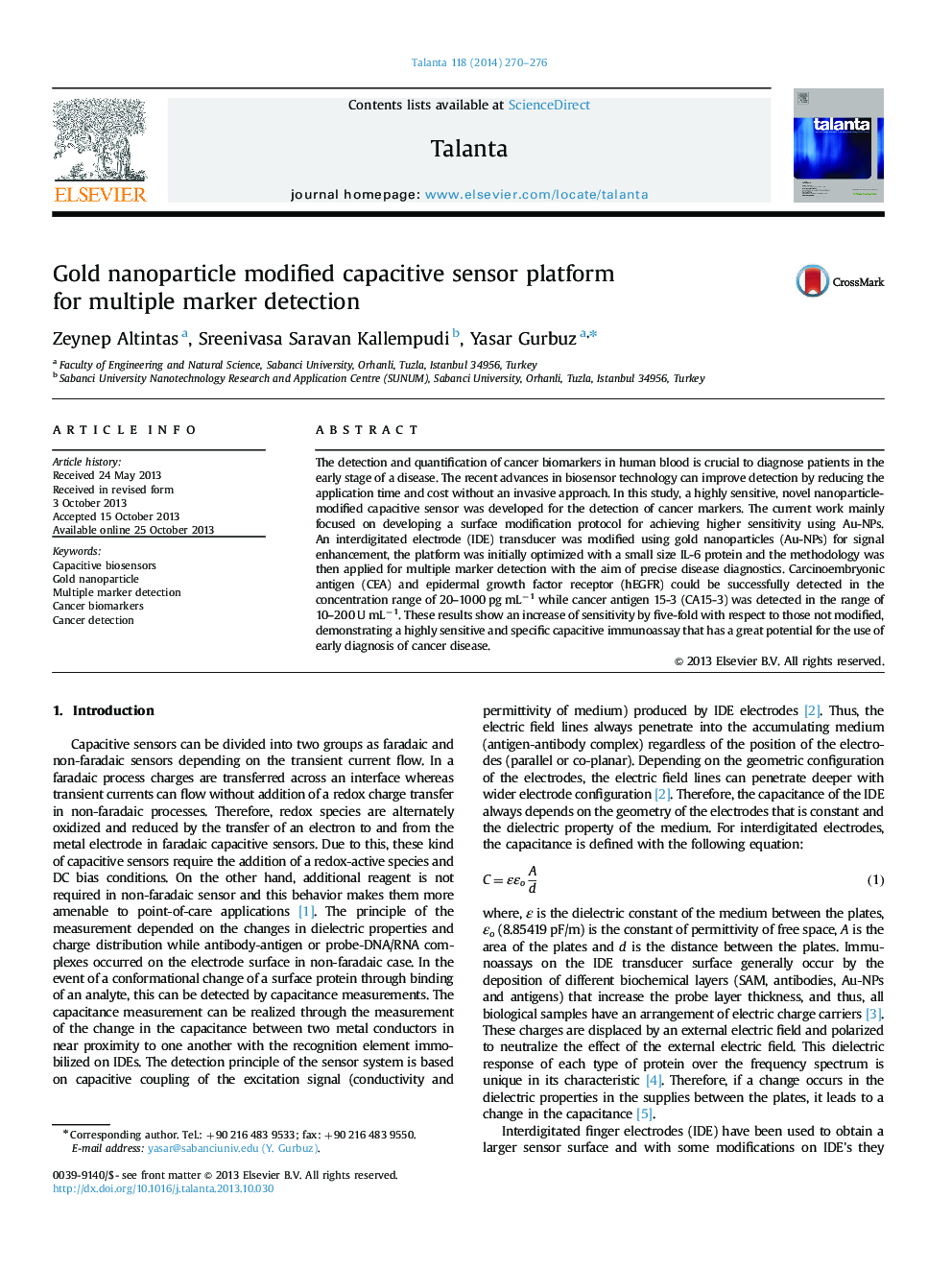| Article ID | Journal | Published Year | Pages | File Type |
|---|---|---|---|---|
| 1242117 | Talanta | 2014 | 7 Pages |
•A new interdigitated electrode (IDE) based biosensor enriched with gold nanoparticles (Au-NPs) for signal enhancement has been developed.•This new biosensor has been successfully demonstrated for the detection and quantification of cancer biomarkers, such as CEA and hEGFR.•High sensitivity is observed in the range of 20–1000 pg mL−1.•The results are compared to those IDE's without gold nanoparticle enrichments, presenting five-fold improvement in sensitivity for the same biomarkers.
The detection and quantification of cancer biomarkers in human blood is crucial to diagnose patients in the early stage of a disease. The recent advances in biosensor technology can improve detection by reducing the application time and cost without an invasive approach. In this study, a highly sensitive, novel nanoparticle-modified capacitive sensor was developed for the detection of cancer markers. The current work mainly focused on developing a surface modification protocol for achieving higher sensitivity using Au-NPs. An interdigitated electrode (IDE) transducer was modified using gold nanoparticles (Au-NPs) for signal enhancement, the platform was initially optimized with a small size IL-6 protein and the methodology was then applied for multiple marker detection with the aim of precise disease diagnostics. Carcinoembryonic antigen (CEA) and epidermal growth factor receptor (hEGFR) could be successfully detected in the concentration range of 20–1000 pg mL−1 while cancer antigen 15-3 (CA15-3) was detected in the range of 10–200 U mL−1. These results show an increase of sensitivity by five-fold with respect to those not modified, demonstrating a highly sensitive and specific capacitive immunoassay that has a great potential for the use of early diagnosis of cancer disease.
